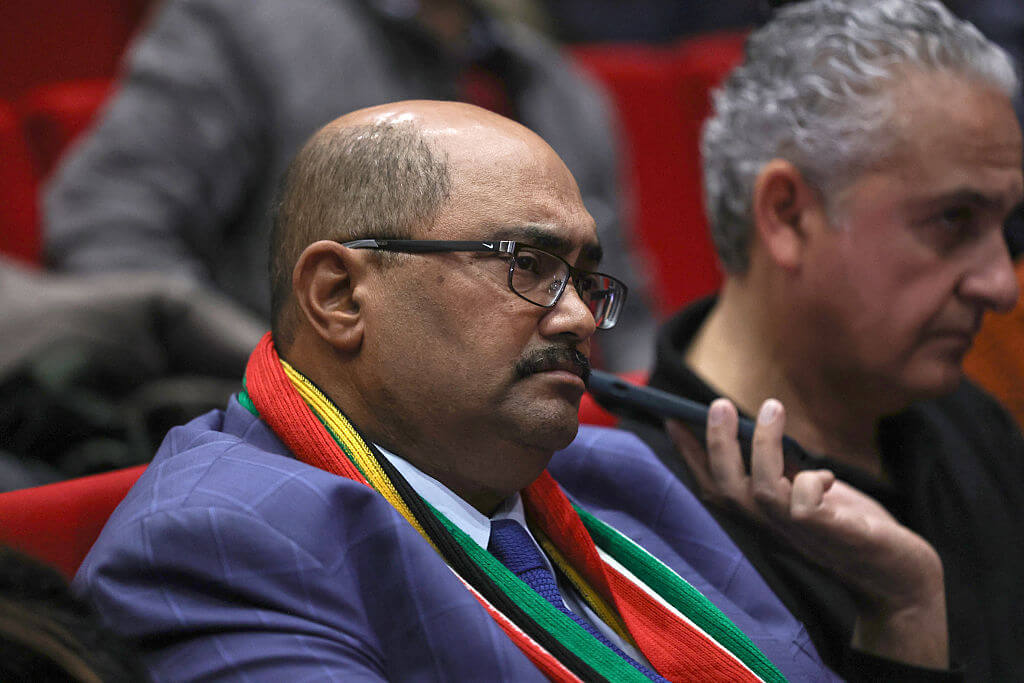Understanding Immigrants’ Plights, Through the Prism of Our Past
Next week the Senate will return from its Memorial Day recess to continue debating a sweeping immigration reform proposal. This debate will have a profound impact on the economy, culture and security of our country, as well as on the lives of millions of immigrants who have seen, and continue to see, the United States as the land of hope and opportunity.
Millions of undocumented migrants from Mexico and other Latin American countries, as well as elsewhere in the developing world, have been here for years, sometimes decades — living, working, weaving themselves into the fabric of American life. Like every immigrant group that came before them, they have helped keep America running, progressing, moving and leading the world. We owe it to ourselves to find a sensible, humane and workable immigration plan that will keep our citizens safe, provide for an ample workforce and retain our well-deserved pride as a welcoming haven for the tired, the poor and the hungry.
We in the Jewish community are compelled to look to our own immigration experience for lessons on the causes and necessities of immigration. One narrative argues that Jewish immigrants fled persecution, pogroms, the Holocaust and communism to find refuge in the United States. These refugees entered the United States legally — following every rule, crossing all the t’s and dotting all the i’s — waiting their turn to get in. This narrative asserts that it is only appropriate to expect that those who come to America today also wait in line, and that historic refugees are somehow morally superior to the so-called “economic migrants” of today.
But there is also a counter-narrative, one that allows us to see the 12 million undocumented migrants as a contemporary reflection of our own history. In this narrative, we recognize that many of our ancestors arrived seeking an opportunity to live in America, the goldene medine — the golden land — free not only from pogroms and antisemitism, but from poverty and deprivation as well.
Poverty has long been a central “push factor” in Jewish immigration. Describing this phenomenon in 1898, the Paris Council of the Jewish Colonization Society traveled throughout the Pale of Settlement in Russia — in the midst of a period of Jewish history that saw more than 1.25 million Jews immigrate to the United States — and reported: “In Vilna, we saw basements that were two floors underground: 5,000 families, that is 20,000 human beings, live in these lairs…. Darkness filled the room, and with the scorching sun outside, we had to light a candle to take in this picture of disgust and desolation.”
Understanding that many of our own ancestors escaped this kind of abject poverty when they immigrated to America, we can appreciate that the hardships of extreme poverty lead suffering people to risk everything for a chance at a future for themselves and their families.
Not only must we look to the flight from extreme poverty as an essential aspect of Jewish migration, but a fair evaluation of our community’s history, both distant and recent, would lead to the conclusion that, while one need not, and should not, condone the practice of undocumented migration, we should understand that desperate people take extreme measures. As the Jewish Emigration Society (founded in Kiev in 1909) reported in 1913, “75% of the emigrants [from Russia] crossed the border illegally, assisted by clandestine emigration ‘agents.’”
It is essential to remember that before 1921, the period of massive Jewish immigration to the United States, there were no visa limits for low-skilled immigrant workers. Also, the refugee resettlement program created six decades later offered very liberal admissions criteria that have allowed hundreds of thousands of Jews from the former Soviet Union to join our community.
While Jews entered America legally during these times of minimal visa requirements and special programs for Jewish refugees, we continue to discover, through our exploration of immigration history and active participation in the growing Jewish genealogy movement, cases in which Jews had entered illegally or overstayed immigration visas during the restrictionist quota system from 1921 to 1965.
Today’s migrants who are escaping grinding poverty face an unreasonable annual quota of only 5,000 slots for low-skilled immigrant workers. However, it is believed that upward of 500,000 new undocumented migrants join the shadow economy each year, demonstrating the dramatic disconnect between available visas and jobs — a disconnect that leads hundreds of thousands of migrants to undertake risky border crossings with tragic consequences. (Nearly 500 individuals lost their lives along our southern border in 2005.)
We can and must take immediate steps to reform our immigration laws in a way that provides strong, yet appropriate penalties for violations of our immigration laws, while better fulfilling our country’s humanitarian principles. The Senate should move forward to create a smart, strong and humane border and interior immigration enforcement system; a path to legal status and citizenship for people after they meet fair and reasonable criteria; new legal immigration options that protect both immigrant and native-born workers; an end to unconscionable backlogs in the immigration of the closest family members, and programs to promote citizenship and the integration of newcomers into American civic culture. Our nation’s values and our community’s history demand no less.
Gideon Aronoff is president and CEO of the Hebrew Immigrant Aid Society.















